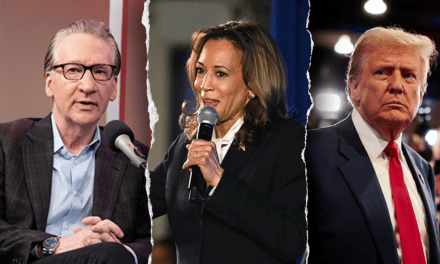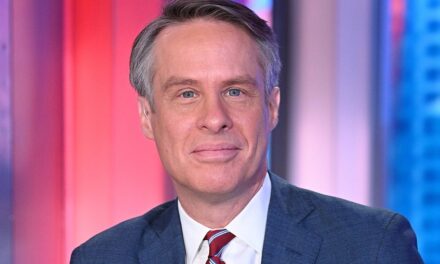A former journalist who is considering a run for a House seat has voiced concerns about the Democratic Party’s direction, particularly in its treatment of working-class constituents. This individual’s remarks illustrate a growing sentiment among certain political figures that the party is straying from its roots and losing touch with the very voters who traditionally support it.
In a recent public address, the potential candidate laid out a passionate argument claiming that the Democratic Party has consistently missed the mark regarding the needs and interests of working-class Americans. They emphasized that this disconnect could lead to repeated electoral losses if not addressed promptly and effectively.
“We keep losing elections because we fail to prioritize the needs of ordinary working people,” the candidate stated. “The party has become too focused on the issues that matter more to the affluent and less aware of the struggles faced by everyday Americans.” This perspective is not new but has gained traction as various political battles unfold across the nation, raising crucial questions about the Democratic strategy and its electoral viability.
The candidate highlighted several issues that resonate particularly with working-class voters, including healthcare access, affordable housing, living wages, and job security. They argued that while certain progressive factions within the party advocate for policies aimed at addressing these issues, the mainstream Democratic leadership has often sidelined them in favor of more centrist approaches.
“We have to ask ourselves why so many people feel abandoned by us,” the candidate remarked, pointing to the declining voter turnout in traditionally Democratic strongholds. “The working class wants solutions, not just speeches. They want to see real change in their everyday lives.”
This commentary has sparked discussions among party members and analysts about the feasibility of a re-focus on working-class interests within the Democratic platform. Critics argue that Democrats have been overly reliant on supporting issues favored by wealthier demographics, such as climate policy and cultural issues, while neglecting the pressing economic concerns that affect the majority of American families.
The potential candidate’s remarks come at a time when the party finds itself at a crossroads, especially with the upcoming midterm elections around the corner. Many believe that the left must recalibrate its message while balancing the demands of varying voter bases to retain and reclaim lost seats.
Interestingly, the narrative of the Democratic Party losing its working-class roots is not a new one; it has existed for decades and has intensified in recent years. Many blame this shift on various factors, including the increasing polarization of American politics and the rise of populist movements within both major parties.
Moreover, opponents of the Democratic establishment argue that the party has migrated to a more elite status, influenced by large donations from corporate backers, which may inadvertently signal to the working class that their concerns aren’t being adequately prioritized. This rift appears to be at the core of the frustrations expressed by the former journalist now pondering a political career.
For the Democratic Party to reclaim its identity and relevance, experts suggest adopting a more populist tone that is inclusive of working-class voices. Meetings and town halls have been encouraged, where local leaders can communicate directly with constituents to better understand their grievances and hopes for the future.
In response to the candidate’s remarks, several established Democrats have acknowledged the challenge, urging the party to broaden its reach and messaging to engage effectively with disenfranchised voters. Some strategists believe that by weaving a narrative that unites economic concerns with social justice issues, the party can attract a wider array of constituents.
Yet the question remains: will this potential candidate be able to galvanize support for their cause? And if so, will they be capable of influencing a significant shift in the Democratic Party’s approach to working-class issues, or will they face struggles similar to those experienced by others who have attempted to infuse the party with a more grassroots-focused agenda?
The prospect of this candidate challenging the status quo has captured the attention of potential supporters, who see an opportunity for renewed focus on the priorities that directly impact their lives. Many commentators are eager to see how this dialogue develops and whether such sentiments translate into tangible electoral strategies that can rekindle working-class enthusiasm for the Democratic agenda.
Meanwhile, the growing calls for outreach to the working class are resonating beyond just the Democratic Party. Various independent candidates and grassroots movements are emerging, echoing similar sentiments about the need to prioritize issues like fair wages, job creation, and healthcare reforms.
This evolving political landscape offers a dynamic opportunity for reflection among politicians and voters alike. As the potential candidacy unfolds, it could play a significant role in shaping not only the future of this individual’s political ambitions but also the broader narrative of working-class engagement in American politics.
Democratic leaders may find it increasingly difficult to retain their foothold without addressing the real-time concerns of the working-class demographic base. Moving forward, a balance must be struck, one that recognizes the importance of broader societal issues while also addressing the critical economic realities faced by millions of Americans.
Time will tell if this potential candidate garners the necessary support and whether those sentiments translate into substantial policy proposals capable of achieving meaningful change. Either way, the conversations sparked by these types of candidacies underscore the importance of including diverse perspectives in the political discourse to pave the way for a more representative and effective governance.
As the midterm elections approach, discussions about recalibrating the Democratic Party’s message will undoubtedly remain at the forefront of political strategy. Earning back the trust of working-class voters should become a priority if the party intends to strengthen its electoral prospects and remain competitive in an increasingly polarized environment.
































